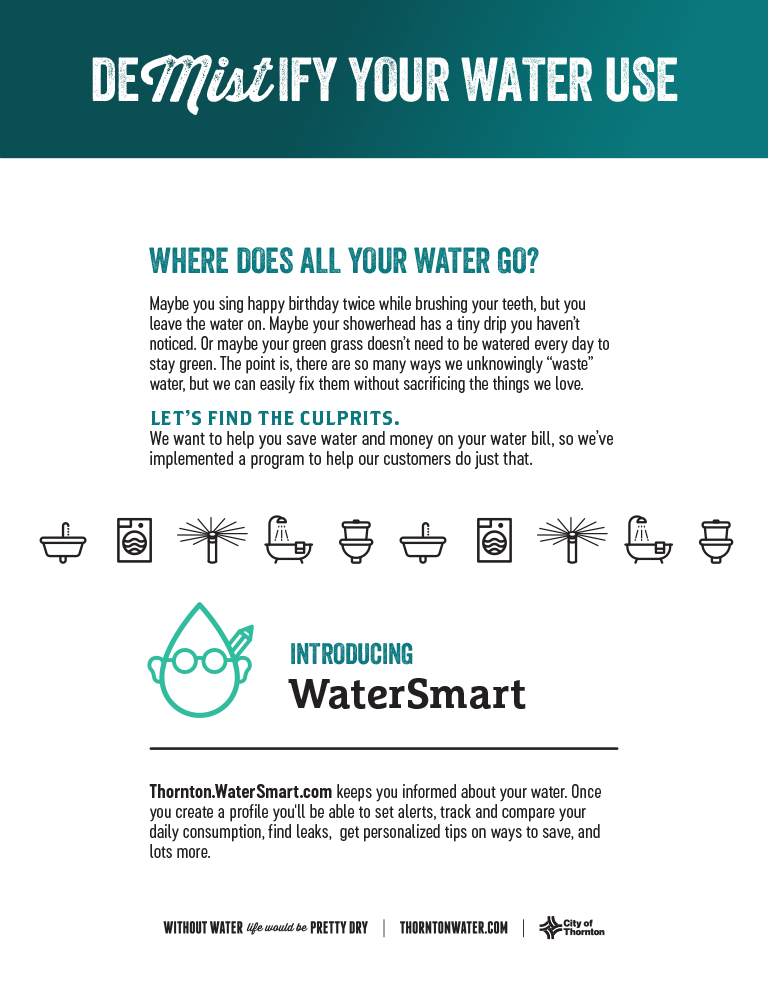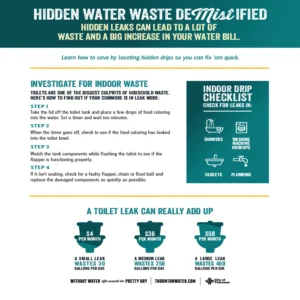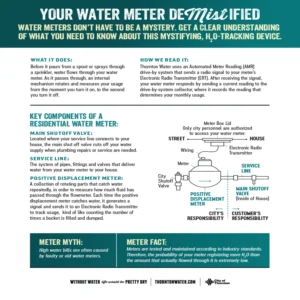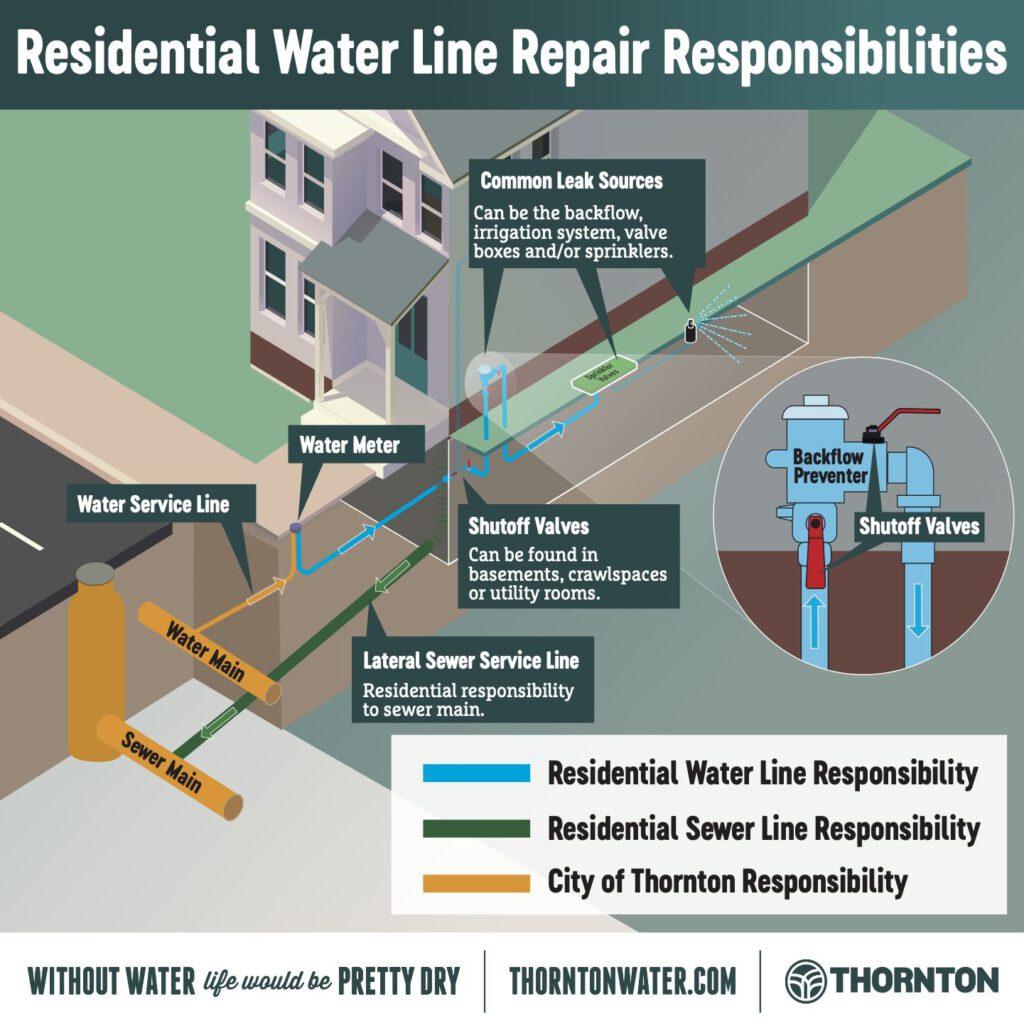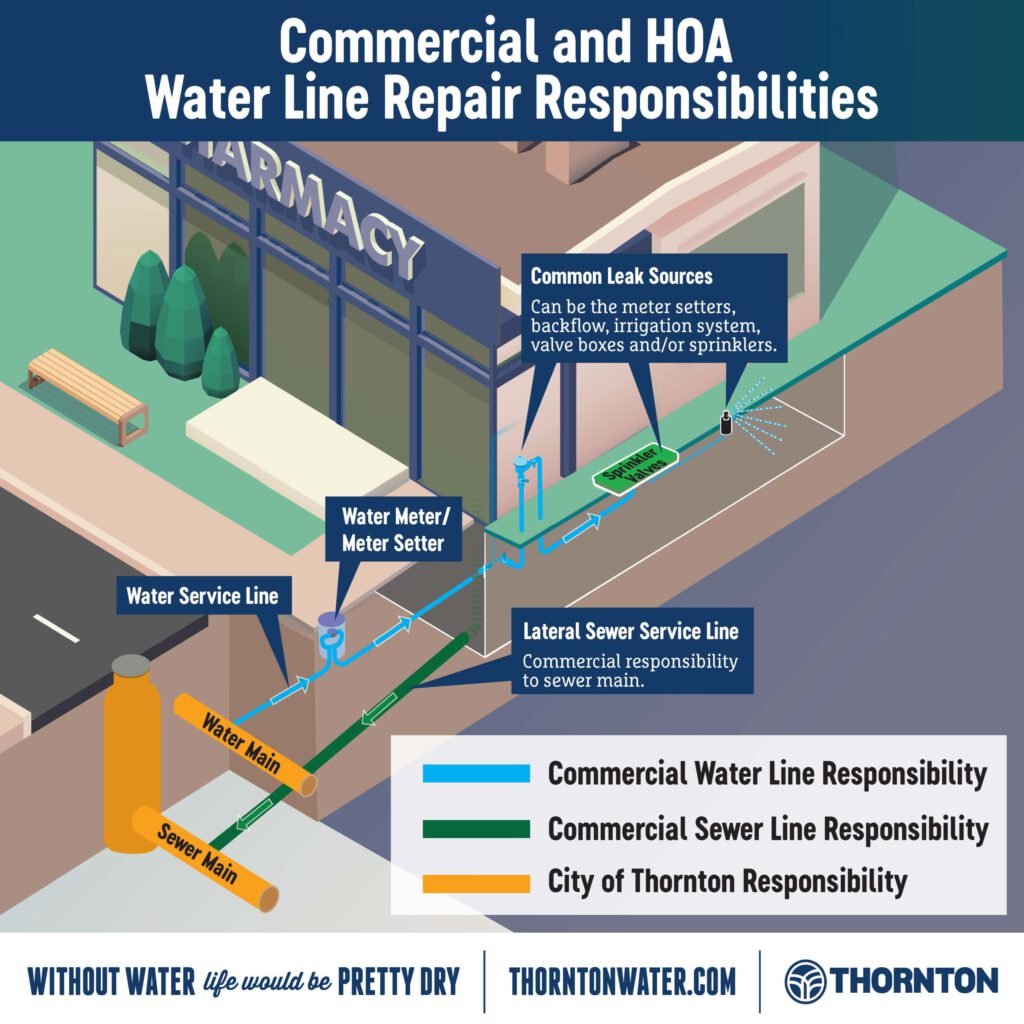Don’t Flush Your Money Down the Toilet.
Most of the time you don’t even realize how much household water is wasted every day. It could be sneaky leaks, devilish drips, or mean old malfunctions. Once you know where your water flows, it’s much easier to identify and repair problem areas and stop wasting water and dollars.
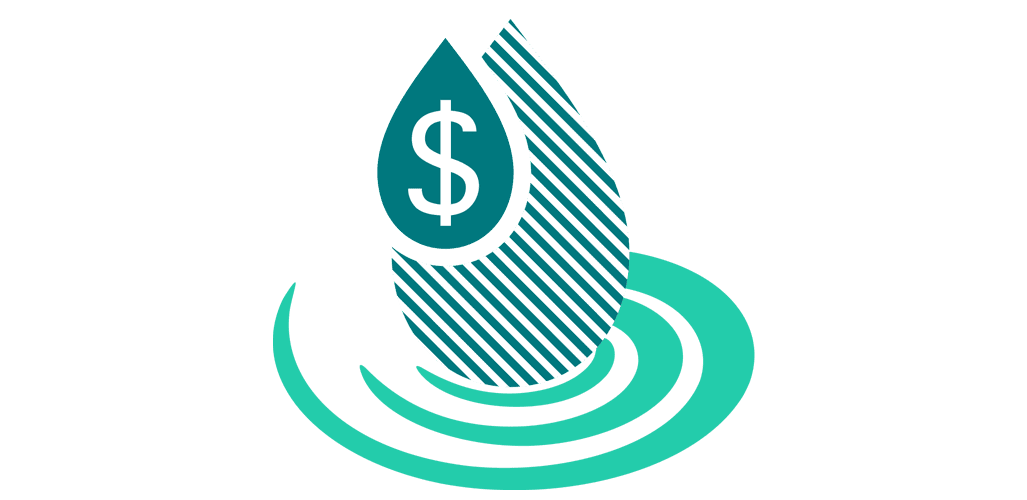
DeMistify Facts – Indoors
Welcome to our DeMistify Series, with everything you wanted to know about where your water goes. Get tips and tricks for understanding and reducing your utility bill by learning how to be a more efficient water-user.
DeMistify Your Water Use
Take a deep dive into your water bill by signing up for WaterSmart and discover how much water you really use.
DeMistify Hidden Water Waste
Lean more on our Hidden Water Waste fact sheet how to check for drips, leaks and faulty parts quickly, so you can fix them quickly.
DeMistify Water Meters
Some people read books, we read meters. Get the facts here on the Water Meter fact sheet what your water meter does and how it does what it does. (En Español)
Learn about Water Line Repair Responsibilities
When leaks arise, it’s important to know who is responsible for repairing which water lines! Know your responsibilities as a homeowner, business owner or HOA and learn about common leak sources.
Indoor Tips
Top 10 no-brainers to help you save water and save money.
Many of these tips cost nothing, or they qualify for a rebate, or they pay for themselves over time.
Upgrade Old Toilets
If your toilet was installed before 1994, replace that water waste with a WaterSense® labeled toilets.
Upgrade Appliances
Replace older washing machines with water-efficient models.
Slow It Down
Replace older high-volume showerheads and faucet aerators with newer water-efficient ones.
Turn It Off
By turning off the faucet while brushing teeth or shaving, you can save about three gallons of water a minute.
Shorter Showers
If you can keep your shower under five minutes, you can save about 30 gallons of water a day.
Quick Fix
Check for leaks, especially in your toilet tank and sprinkler system as soon as possible.
Fill ‘Em Up
Only run dishwashers and washing machines when they are fully loaded.
>Don’t Rinse
If you have a newer dishwasher, you may not need to rinse your dishes beforehand.
Know Your Usage
Monitor your water bill for unusually high use. A high-water bill can alert you to a possible leak.

